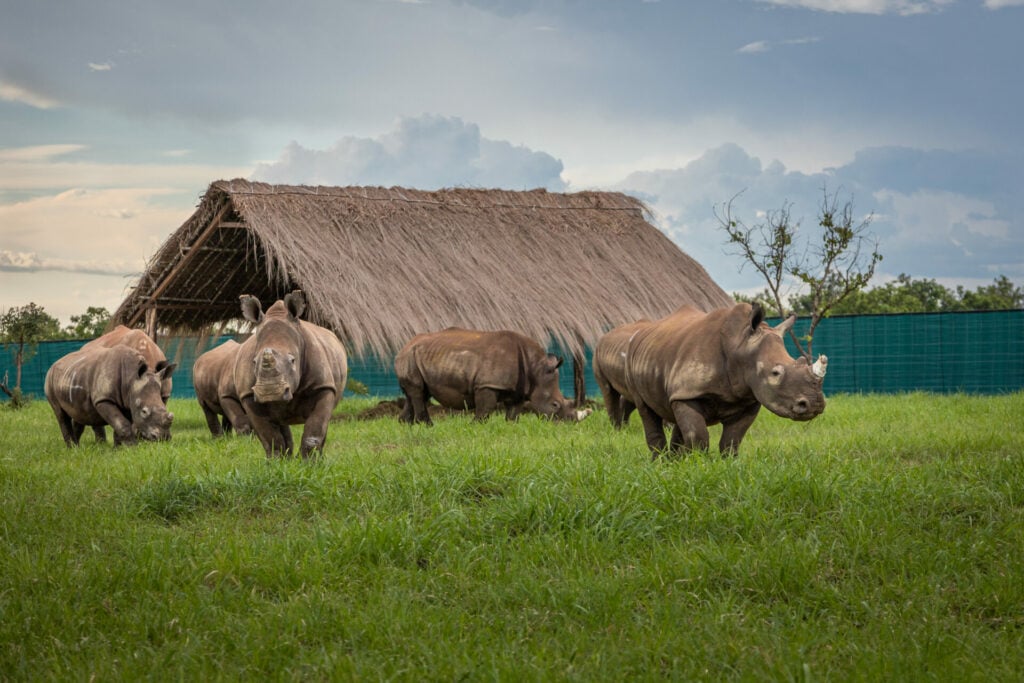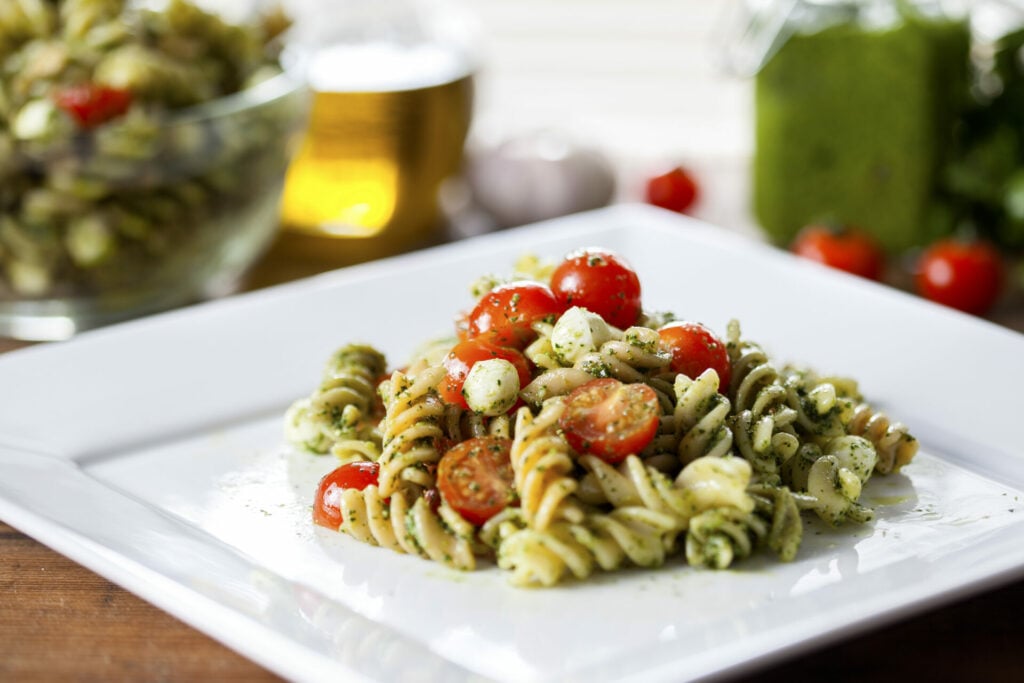‘If slaughterhouses had glass walls, everyone would be a vegetarian,’ Paul McCartney once said. Meat production has, of course, long been a contentious issue for taking sentient life. It’s been an on-and-off health issue too. But increasingly it’s a matter of climate, so much so that some claim we should eat much less meat, even no meat at all.
‘The whole food system is a huge source of emissions and a lot of that comes from animal-derived products,’ argues Joy Van Breda, science communicator and consultant to The Plant-Based Treaty, an attempt to establish a food systems equivalent to the UNFCCC Paris Agreement on fossil fuels.
‘If we want to live within planetary boundaries we need to address how we produce food and, if we’re going to be very critical, then meat doesn’t really fit into this scheme. We need to reduce our consumption of red meat especially and dramatically. I think meat-eating is working against nature right now.’
So, what’s the problem with meat, from a climate perspective?
The Meat Toll
Firstly, few cattle are grass-fed; most are fed on soy-based diets that have to be produced and then shipped around the world at an environmental cost. Secondly, animal farming is a major source of ammonia emissions – these react with ‘fine particulate matter’ to create serious air pollution in some parts of the world. Thirdly, and more problematically, the world’s 940m cows belch and fart. They belch and fart a lot of methane. Indeed, they’re the main source of methane emissions.

A single cow produces between 154 to 264 pounds of methane gas per year. Not counting for the emissions of any other livestock, 1.5 billion cattle, raised specifically for meat production worldwide, emit at least 231 billion pounds of methane into the atmosphere each year. Agriculture is directly and indirectly responsible today for more than 40 per cent of global methane emissions, with much of that coming from livestock.
However, its impact is imprecise and there is a lot of debate between environmentalists and the meat and dairy industries as to the right measures to apply. Nonetheless, methane is certainly the second-biggest driver of global warming after CO2. It’s more effective at trapping heat in the atmosphere than CO2 but most of it breaks down naturally after a couple of decades. The problem is when methane levels are continuously topped up, it keeps that additional heating constant.
‘Calls to stop eating meat are unrealistic. It’s just not that simple because the choice whether or not to eat meat is very much a first world one. We tend to forget that [in many parts of the world] livestock are people’s only livelihood. It’s their life insurance.’
Matthias Haas, Micro-biologist, University of California Davis
The farming industry is working on solutions: bio-digesters harvest methane from manure pits, for example, while experiments in feeding cattle various supplements to reduce their methane output are on-going. A twice-daily garlic and citrus extract has been shown to cut it by 20 per cent, and a red seaweed extract is also being trialled, without any harm to the cows. Seaweed, a seemingly innocuous plant, could one day lower methane emissions by as much as 98 per cent in cattle with only a 0.20 percent addition to their daily feed.
Are Microbes the Answer?
Perhaps the solution is found not in what cows are fed, but, as it were, at the other end of the cow. Micro-biologist Matthias Haas, of the University of California Davis, is leading a new $70m project that aims to to better understand how gut microbes interact with one another to create the microbiomes that are vital to us and other lifeforms.

One end goal of this could be the use of gene-editing technology to produce microbes that wouldn’t see methane as a waste product but could use it in ways useful to the host animal and in ways both more productive and cheaper in terms of protein, too. These would be introduced to calves and then become part of their natural biological processes. The upshot? Much less or no methane emissions.
‘It’s an audacious project because we’re working with microbes at a resolution that hasn’t been done before,’ explains Haas. ‘But the fact is that calls to stop eating meat are unrealistic. It’s just not that simple, not least because the choice whether or not to eat meat is very much a first world one. In this conversation we tend to forget that [in many parts of the world] livestock are people’s only livelihood. It’s their life insurance.’
Carnivore or Vegan Future?
Indeed, as ever with such topics, the reality is far from clear cut, not least because cutting out the impact of cattle would require not just a vegetarian but a vegan diet – it’s not just meat cattle but dairy cattle that belch. That would require both facing the enormous challenge of unravelling a global food economy intricately wrapped up in livestock farming and re-thinking how to fill the nutritional hole left by the absence of meat and dairy.
The vast land given over to cattle couldn’t be easily turned over to the production of fruits and vegetables – the soil quality isn’t up to it. The land would be good for the growing of hardy crops like corn and soybeans, but they have their own climate impacts
There’s the problem of bringing about massive cultural shifts in some parts of the world too: consumption of meat and dairy has continued to grow steadily for the last decade in the United States, for example, despite the climate implications.

Others have pointed out that the vast land given over to cattle couldn’t, as is suggested, be easily turned over the production of fruits and vegetables – the soil quality isn’t up to it. The land would be good for the growing of hardy crops, like corn and soybeans, but they have their own climate impacts. Besides, crops need fertiliser. And where does a lot of that come from? Livestock. Synthetic fertilisers are made from fossil fuels. Cattle also eat a lot of the agricultural byproducts – fruit peels, almond hulls and other crop waste – which would otherwise end up in landfill. Even feeding them seaweed requires the establishment of a global supply chain.
Yes, some research suggests that even gently dialling back meat-consumption could shrink an individual’s carbon footprint by as much as 75 per cent. Yet one recent peer-reviewed study by Arizona State University concluded that, given the systems needed to replace it, an animal-free agriculture system would shave just 2.6 per cent off the US’ total greenhouse gas emissions – not nothing, but hardly a game-changer.

As Van Breda stresses, meat is just one of the climate issues in food production: there’s the impact of fertilisers, for example, and the side effects of mono-culture crops. But meat isn’t even the only culprit among foods, and the attention focused on it turns the spotlight away from the others. If, as some studies suggest, beef production, among all foods, accounts for the most global greenhouse gases, this is followed by rice. Rice, in fact, generates more greenhouse gases globally than pork, lamb, poultry, mutton and dairy put together.
But, of course, we can’t wait for Haas’s technology to save the day. Van Breda calls for more education and a broad social movement for change, precisely because, he notes, ‘we haven’t crossed that social tipping point [with regards to meat-eating] yet.’ Before then, what attitude might we take to our own meat consumption?
Haas recommends simply eating less and better – as was more the typical pattern of consumption before the 1950s, when meat production started to industrialise on a global scale. He notes that many cultures have, unfortunately, come to see meat as a daily food stuff: yet, evolutionarily speaking, we’re not designed to eat meat frequently and, in fact, our ancient ancestors didn’t.
‘I don’t see why that isn’t a behaviour we couldn’t return to,’ he says. ‘Reducing meat would be healthy for us as individuals and also for the planet.’ Just not as healthy as we’re often told.
Tell us what you think? Get in touch at hello@theethicalist.com













